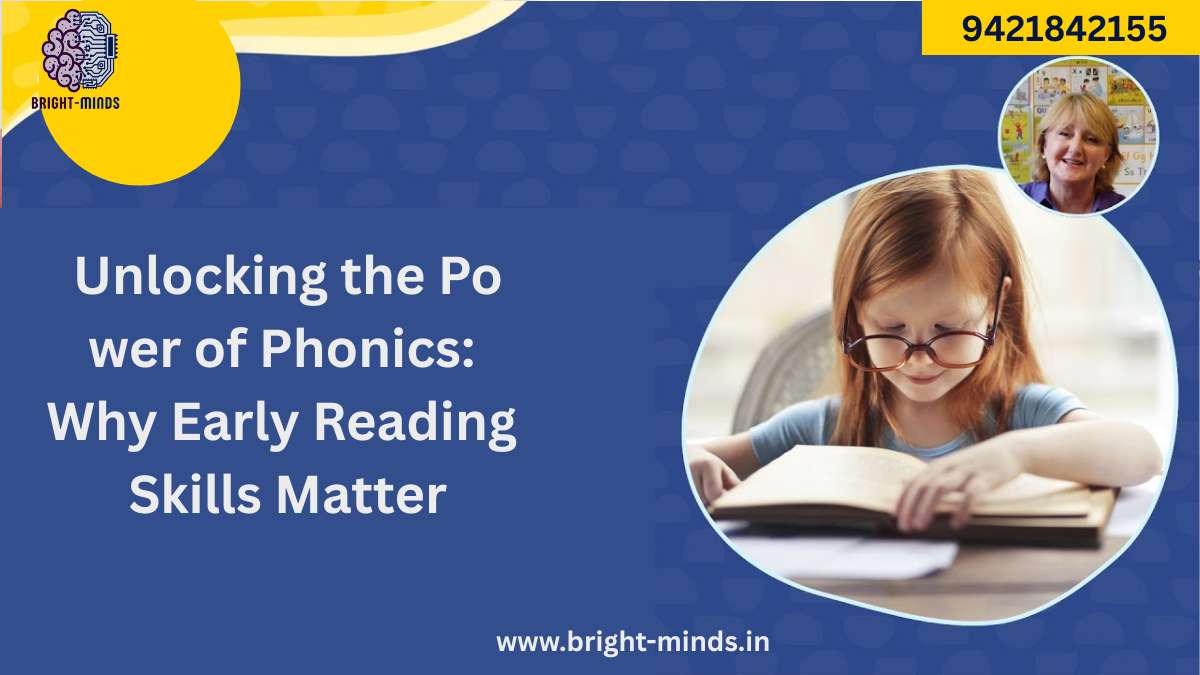The Foundation for Lifelong Learning, Confidence, and Financial Success
Picture this: a child opens a book and begins to read. Not by memorizing words or guessing pictures, but by decoding sounds, blending letters, and unlocking meaning—one syllable at a time.
That’s the power of phonics—and it’s not just about reading books.
It’s about building confidence, enhancing cognitive development, and laying the groundwork for academic success, financial literacy, and lifelong learning.
Whether you’re a parent, educator, or a company professional interested in youth development, understanding the importance of phonics is one of the smartest investments we can make for our children’s future.
What Is Phonics, and Why Should You Care?
- The letter “c” can sound like /k/ as in “cat” or /s/ as in “circuit.”
- Blending sounds like /b/ + /a/ + /t/ = “bat.”
It may sound simple, but this skill is the bedrock of literacy. Without phonics, children often rely on rote memorization, which quickly falls apart when they encounter unfamiliar words.
Why Phonics Is a Game-Changer: Key Benefits
✅ Builds Stronger Reading Fluency
Children who learn phonics read faster, more accurately, and with better comprehension.
✅ Boosts Vocabulary and Spelling
When kids understand sound-letter relationships, they can spell and decode new words more easily.
✅ Increases Confidence and Academic Success
Reading fluently builds self-esteem, which affects performance across all subjects—including math and science.
✅ Opens the Door to Financial Literacy
Yes, really. Without strong reading skills, understanding key financial concepts (like budgeting, contracts, or investment basics) becomes much harder later in life.
Real-World Application: Why Early Reading Matters in Adulthood
Let’s fast-forward 20 years. A child who developed strong phonics skills is now:
- Reading job contracts carefully
- Comparing financial options for loans
- Understanding terms in insurance policies
- Teaching their own kids how to read and manage money
Strong readers become strong decision-makers—and that’s exactly what employers, educators, and economists are emphasizing today.
Market Trends: Phonics Is Back in Focus
Over the past decade, a “science of reading” revolution has taken hold across education systems worldwide. Leading studies and experts agree: phonics-based instruction is more effective than “whole language” methods that emphasize word memorization.
Notable Market Highlights:
- U.S. states like Mississippi and Colorado have reformed reading curriculums to prioritize phonics—and have seen major gains in literacy rates.
- EdTech platforms like Hooked on Phonics, Reading Eggs, and Lexia are booming as more schools and parents seek phonics-based solutions.
- The global phonics market is expected to surpass $1.5 billion by 2028, reflecting a renewed commitment to early literacy.
And guess who’s taking notice? Companies.
Why This Matters to Businesses and Employees
At first glance, phonics might seem like a topic just for schools. But early reading proficiency has ripple effects that touch every sector:
📈 For Employers:
- Literate employees are better problem-solvers, communicators, and team players.
- Early literacy investments improve long-term workforce development.
- Sponsoring or supporting phonics programs builds community goodwill and CSR impact.
👨👩👧 For Parents and Caregivers:
- Teaching phonics at home builds stronger parent-child bonds.
- Reading becomes a family habit, not a homework battle.
💼 For HR and CSR Professionals:
- Hosting community literacy drives or reading mentorships is an impactful CSR initiative.
- Financial literacy training often fails without a strong reading foundation—help your community start earlier.
How to Start Teaching or Supporting Phonics
You don’t need to be a teacher to make a difference. Here are a few practical ways to support early reading:
1. Use Phonics Apps and Tools
Apps like Starfall, ABCmouse, and Teach Your Monster to Read turn learning into a game—perfect for busy parents or after-school programs.
2. Make Reading Routine
Spend just 10–15 minutes a day reading aloud. Choose simple books that encourage sounding out words, not just recognizing them.
3. Incorporate Phonics in Play
Use letter blocks, rhyming games, or sing alphabet songs that emphasize phonemes (the sounds of speech).
4. Support Literacy Nonprofits
Companies can fund organizations like Reading Partners or Reach Out and Read, which provide phonics materials to under-resourced schools.
5. Encourage Employee Volunteering
Offer paid time for employees to mentor or read to children in schools. It’s a low-cost, high-impact initiative.
Relatable Story: From Sounding Out to Soaring
Meet Leo, a first-grader who struggled with reading. His school introduced a structured phonics program supported by a local company’s community initiative. Within months, Leo could:
- Decode complex words
- Write short stories
- Feel proud reading aloud in class
Today, Leo’s favorite subject is science—because now he can read and understand the textbooks.
This isn’t just about literacy. It’s about opportunity, self-belief, and access to a brighter future.
Financial Literacy Begins with Literacy
Here’s something most people don’t think about: you can’t teach financial literacy without basic literacy.
Understanding terms like:
- Interest rates
- Compound savings
- Credit scores
…requires a strong foundation in reading comprehension.
When we equip kids with phonics and reading skills early, we’re not just preparing them for school—we’re laying the groundwork for financial success, career confidence, and empowered decision-making later in life.
Final Thoughts: The First Step Is a Sound
It all starts with one sound. One letter. One curious question: “What does that say?”
By prioritizing phonics and early reading, we give kids the tools to navigate not just books, but life itself—from classrooms to careers, from earning to investing.
Whether you’re a parent, educator, or part of a company seeking meaningful social impact, your involvement in early reading initiatives can transform lives.
Because unlocking the power of phonics isn’t just about reading. It’s about unlocking potential.

